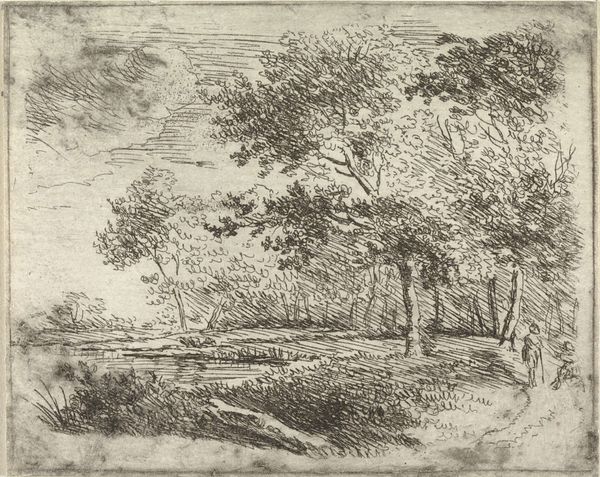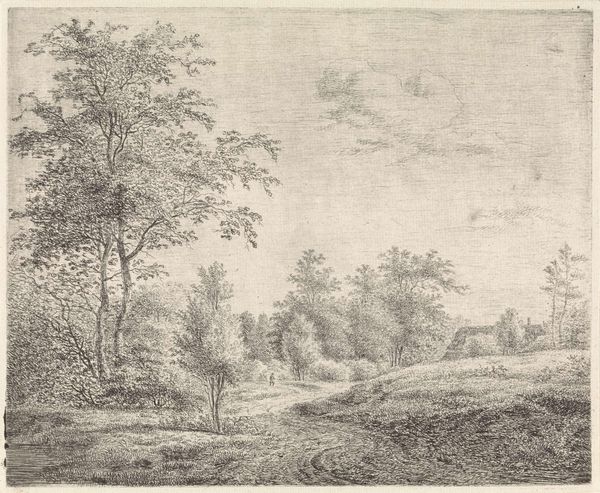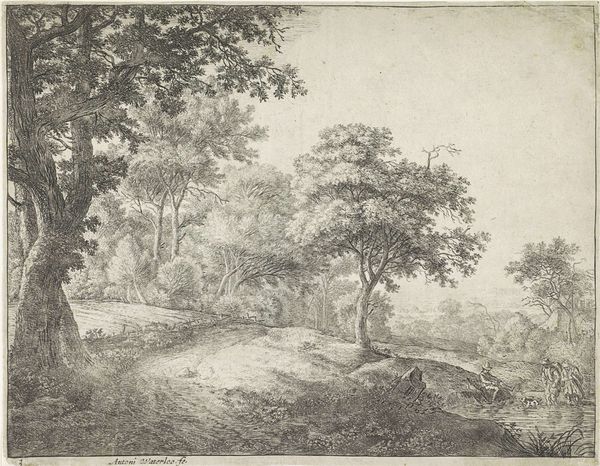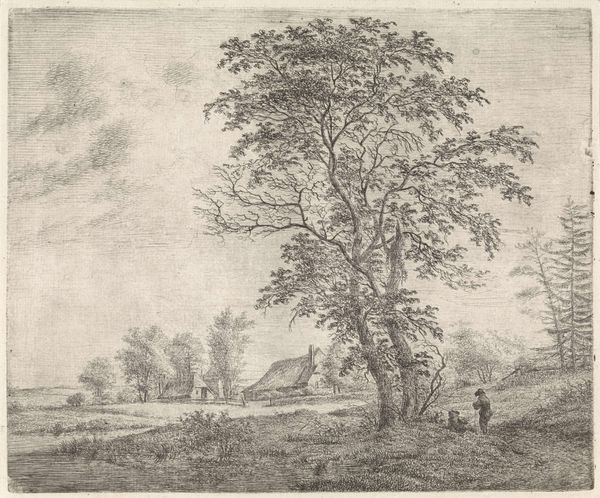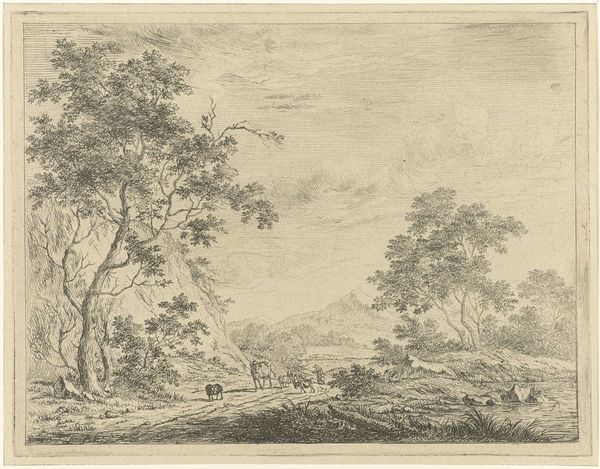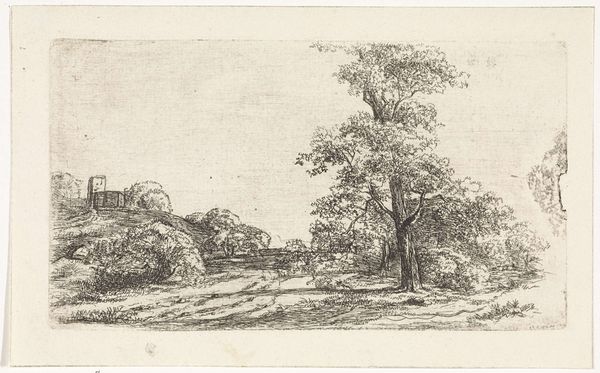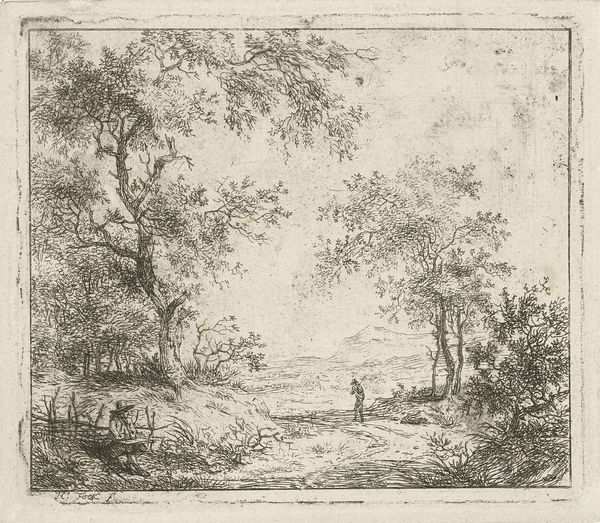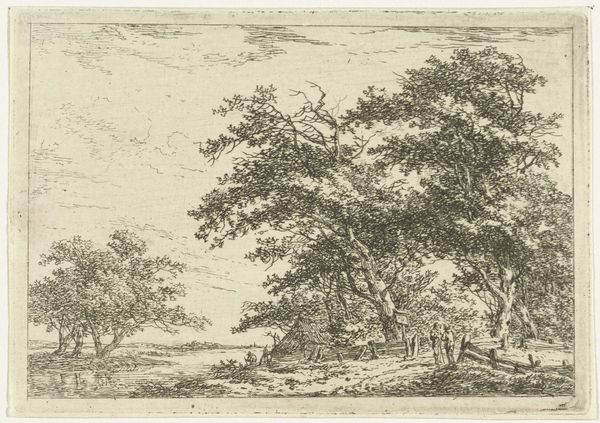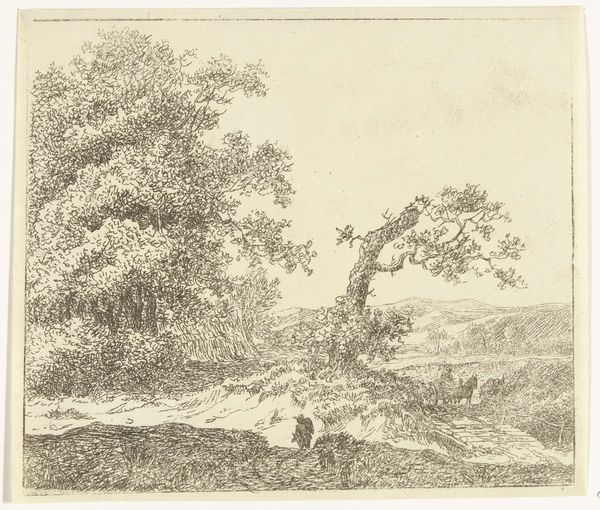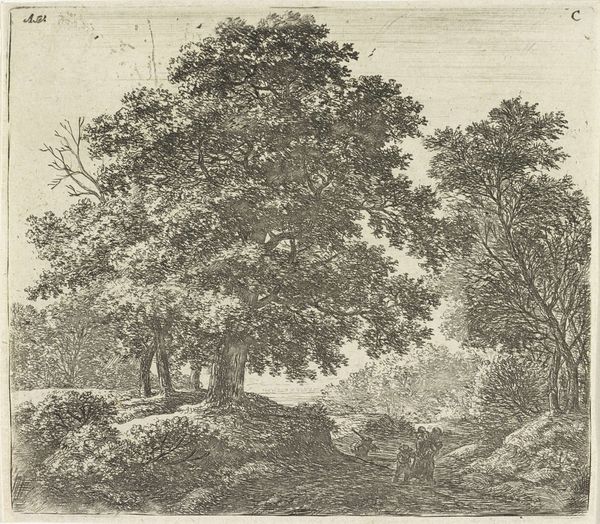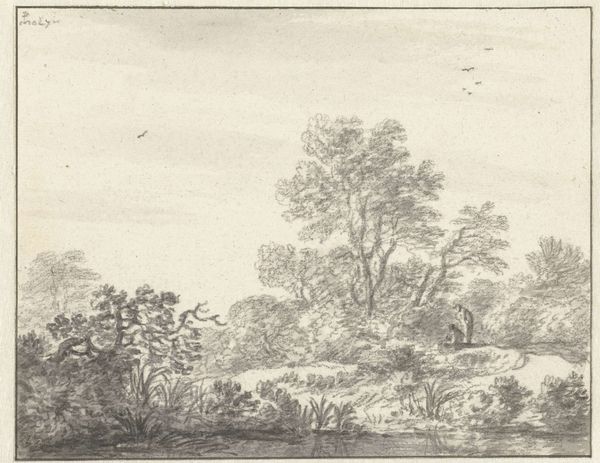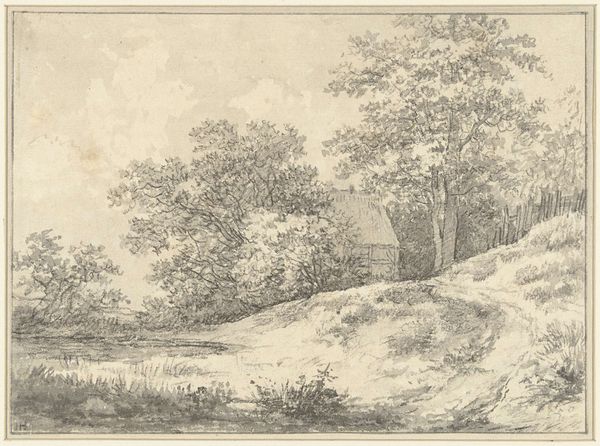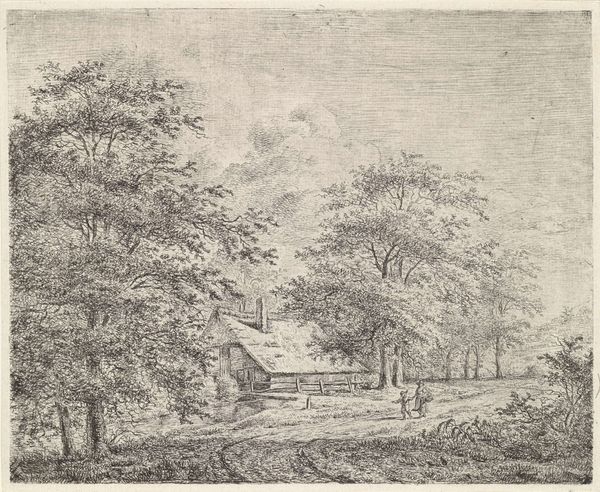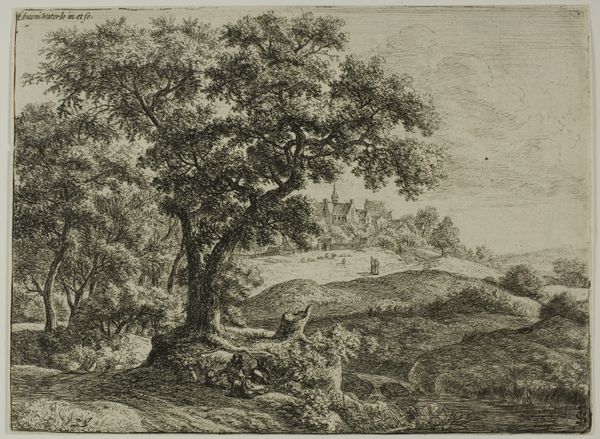
drawing, pencil
#
pencil drawn
#
drawing
#
pen sketch
#
pencil sketch
#
landscape
#
figuration
#
romanticism
#
pen-ink sketch
#
pencil
#
line
#
pen work
#
pencil work
#
realism
Dimensions: height 160 mm, width 196 mm
Copyright: Rijks Museum: Open Domain
Curator: Here we have Pieter Janson’s “Man en vrouw in heuvelachtig landschap,” which roughly translates to "Man and Woman in Hilly Landscape." The work dates somewhere between 1780 and 1851. Editor: It’s remarkably light and airy. The drawing feels quite gentle; look at the softness of the pencil work and how it captures a certain stillness in the scene. Curator: It does, doesn’t it? Landscape, particularly in this era, takes on a quality of mirroring internal emotional states. Notice how the figures seem small, almost nestled within the landscape itself, reflecting humanity’s relationship to nature in the Romantic period. Editor: The drawing’s quite delicate. Considering it’s pencil on paper, one really appreciates the labour involved in creating such textures, the repetitive, tiny strokes. Also the question arises, was it produced for its own sake, or perhaps as preparatory for something more permanent? Curator: That's a fascinating question. Given the prevalence of similar sketches from that time, and the emergent middle class, it speaks to the rise of art for personal consumption rather than strictly commissioned work for, say, a church or nobility. The landscape shifts from simply backdrop to a subject of individual contemplation and personal significance. The work invites us to remember an earlier sensibility toward landscape, before heavy industrialization. Editor: Yes, you're right. It's fascinating to see how simple materials like pencil and paper can be used to reflect such an emotional depth but also create almost proto-photographic landscape in series of drawing works made by that class and generation. Curator: It leaves one thinking about how landscape served as a mirror for personal sentiment then, and how perhaps it could serve that function again in the face of current crises. Editor: Exactly. Considering the subtle but intense production process and labour for achieving that unique pictorial landscape aesthetic we now recognise in those drawing works of that era, yes! Curator: Indeed. Food for thought as we continue our tour.
Comments
No comments
Be the first to comment and join the conversation on the ultimate creative platform.
